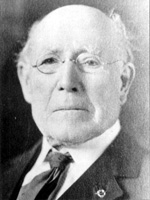 U.S. Rep. John Garamendi, former Deputy Secretary of the U.S. Interior Department and a current Member of the House Transportation and Infrastructure Subcommittee on Aviation, has introduced legislation that would restrict private drones within two miles of a wildfire or airport.
U.S. Rep. John Garamendi, former Deputy Secretary of the U.S. Interior Department and a current Member of the House Transportation and Infrastructure Subcommittee on Aviation, has introduced legislation that would restrict private drones within two miles of a wildfire or airport.
The bill would make it a federal offense, punishable by up to a year in prison or fines, to fly a commercial or private drone over an airport or active wildfire. The legislation is in direct response to several incidents in California where private drones observing wildfires forced firefighting agencies to postpone air response out of fear of collision.
“Private drones impede emergency air response in situations where seconds matter. The regulations are not keeping pace with the technology, and it is putting lives, property, and habitats at risk,” Congressman Garamendi said. “In California, we’ve seen air response to wildfires delayed due to private drones, and it’s made a dangerous situation worse. I understand the drone operators are not usually being malicious, but they are being reckless. It’s time to set clear boundaries and clear consequences for dangerous behavior that puts lives at risk.”
The U.S. Forest Service has identified 13 different wildfires this year where drones interfered with firefighting, up from four the previous year. Most severely, during the Lake Fire in San Bernardino, drones forced low flying aircraft dropping fire retardant to abandon their mission at a critical juncture, enabling the fire to spread further and causing preventable property damage. Drones have also been spotted over airspace at several U.S. airports, including John F. Kennedy Airport in New York City and LAX, disrupting flights and putting lives in danger. In recent weeks, four separate airline crews reported drones in their airspace over Newark International Airport and two reported drones over JFK. Nationwide, 765 incidents have been reported in the past nine months.
As the Forest Service notes, “The unauthorized use of a ‘drone’ in the area of a wildfire poses serious safety risks to wildland fire aviators in the air and firefighters on the ground. Recent incursions have caused air operations over fires to be halted, increasing risks to firefighters and the public.”
Garamendi believes his legislation is bipartisan in nature and essential to protect human life and property, and he will spare no effort to give this bill a hearing when Congress returns to session in September.
Like this:
Like Loading...
Related




 Tweet This
Tweet This Facebook
Facebook Digg This
Digg This Bookmark
Bookmark Stumble
Stumble RSS
RSS



























REAL NAMES ONLY: All posters must use their real individual or business name. This applies equally to Twitter account holders who use a nickname.
1 Comment
The problem is amateur fliers. Professionals who shoot footage for news and documentaries usually are VERY careful with their equipment and would not dare fly in areas where it could be damaged by other aircraft (or damage them.) It’s their livelihood, yet they are punished because of the actions of amateurs.
ALL pending federal regulation from the FAA curiously focuses on professional drone operators– anyone being paid for their work– and not the amateurs who are the reckless ones! If you’re not being paid you can do pretty much what you want, but once you accept money for your footage there’s a mile of red tape to stop you! Go figure.
I have friends who fly helicopters for a living (including CalFire and medical helicopters) and I am certainly sensitive to their valid safety concerns. But the knee-jerk reaction is toward the wrong people, and is often a blanket prohibition.
I agree with not flying over airports or restricted airspace (duh!) but over fires where there are no existing air operations, it can be a very useful tool. Better if they’d coordinate with firefighting assets on the ground and in the air than ban them outright.